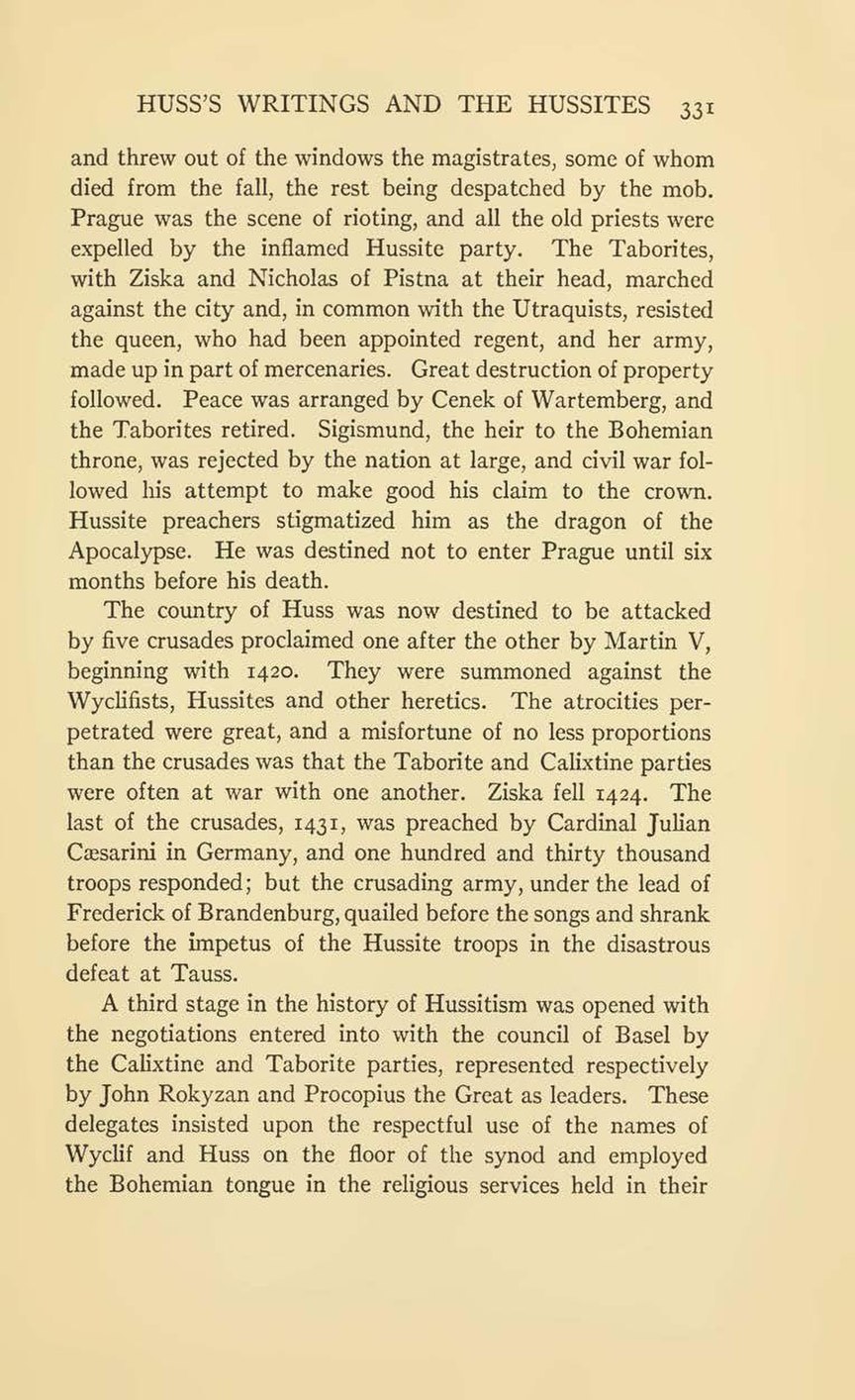and threw out of the windows the magistrates, some of whom died from the fall, the rest being despatched by the mob. Prague was the scene of rioting, and all the old priests were expelled by the inflamed Hussite party. The Taborites, with Ziska and Nicholas of Pistna at their head, marched against the city and, in common with the Utraquists, resisted the queen, who had been appointed regent, and her army, made up in part of mercenaries. Great destruction of property followed. Peace was arranged by Cenek of Wartemberg, and the Taborites retired. Sigismund, the heir to the Bohemian throne, was rejected by the nation at large, and civil war followed his attempt to make good his claim to the crown. Hussite preachers stigmatized him as the dragon of the Apocalypse. He was destined not to enter Prague until six months before his death.
The country of Huss was now destined to be attacked by five crusades proclaimed one after the other by Martin V, beginning with 1420. They were summoned against the Wyclifists, Hussites and other heretics. The atrocities perpetrated were great, and a misfortune of no less proportions than the crusades was that the Taborite and Calixtine parties were often at war with one another. Ziska fell 1424. The last of the crusades, 1431, was preached by Cardinal Julian Cæsarini in Germany, and one hundred and thirty thousand troops responded; but the crusading army, under the lead of Frederick of Brandenburg, quailed before the songs and shrank before the impetus of the Hussite troops in the disastrous defeat at Tauss.
A third stage in the history of Hussitism was opened with the negotiations entered into with the council of Basel by the Calixtine and Taborite parties, represented respectively by John Rokyzan and Procopius the Great as leaders. These delegates insisted upon the respectful use of the names of Wyclif and Huss on the floor of the synod and employed the Bohemian tongue in the religious services held in their
